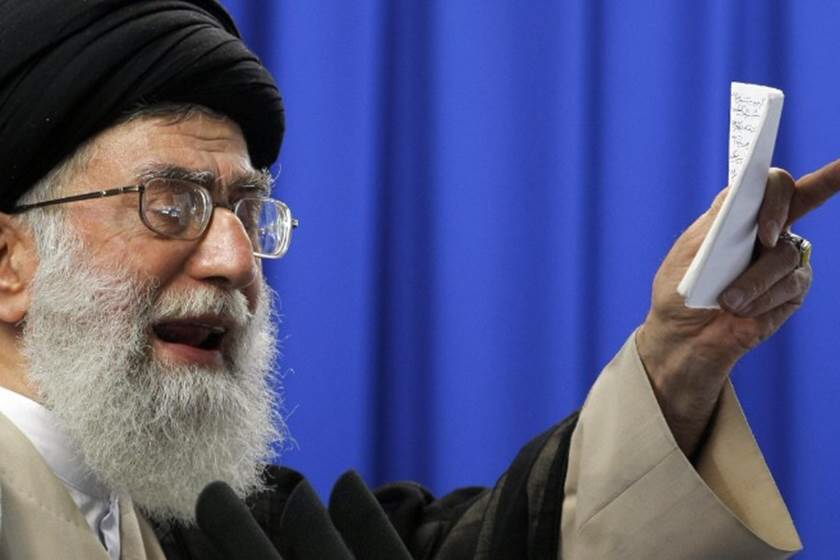 Iran contributing to political gridlock in Iraq | Mona Alami | AW
Iran contributing to political gridlock in Iraq | Mona Alami | AW
Despite US sanctions, Iran appears in a more comfortable position at the regional level with US President Donald Trump’s disengagement from the Middle East. Iran is thus gearing up to consolidate power in countries where it projects influence, including Iraq.
The United Sates reinstated sanctions on Iran last November, targeting more than 700 individuals and entities, including major banks, oil exporters and shipping companies. The US Department of State designated the son of Hezbollah Secretary-General Hassan Nasrallah a global terrorist. In October, the US Senate passed bills sanctioning Hezbollah and foreign nationals and companies that secured material, financial or technological support to the Lebanese militant group and its regional affiliates.
The Iraqi parliament appointed 14 of Iraqi Prime Minister Adel Abdul-Mahdi’s 22 cabinet nominees in November. Other ministers were appointed in December. However, lawmakers failed to vote on the key defence and interior ministries, mainly because of political disagreements between the two largest political blocs in the parliament — the Islah alliance dominated by prominent Shia cleric Muqtada al-Sadr and the pro-Iran Shia al-Binaa coalition led by militiaman Hadi al-Amiri.
The mercurial al-Sadr is perceived as one of the strongest political players and a kingmaker in Iraq. His bloc, the largest in parliament, has 54 out the 329 parliamentary seats. Power within Shia blocs is more fragmented: al-Sadr is a powerful enemy because he can raise stakes thanks to his ability to command widespread street movements. Al-Sadr has capitalised on anti-corruption protests across Iraq.
In addition, Iraq is ruled by the tradition of consensual democracy, which disregards the principle of majority rule and encourages political factions to form a participatory government. This rule allowed Nuri al-Maliki, at the behest of Iran, to sideline Ayad Allawi, who had won the plurality of the vote in the 2010 elections, to become prime minister at the time.
This policy is favoured by Iranian allies in Iraq and Lebanon. “Consensus is necessary in Iraq, parties need to agree on the ministries,” said Montathar Nasser, editor of al-Alam, an Iraqi news outlet.
Pro-Iran figures such as Qais Khazali, leader of the Asaib Ahl al-Haq militia, Maliki and Amiri are clinging to the appointment of Falih Alfayyadh as minister of interior.
Alfayyadh is head of the Popular Mobilisation Forces (PMF) and a member of a Dawa Party, perceived to be close to Iran. The PMF, which played a critical role in the defeat of the Islamic State (ISIS), includes militia groups with ties to Iran.
“Al-Sadr does not want someone who is affiliated to a clear party line, such as Falih Alfayyadh,” said Nasser. “Alfayyadh was the only name submitted for the post of minister of interior and has the support of Qassem Soleimani,” said Nasser, in reference to the head of al-Quds Force, the elite branch of Iran’s Islamic Revolutionary Guard Corps, responsible for external operations.
Since the claimed defeat of ISIS, Soleimani and Iraj Masjedi, Soleimani’s former aide who is now Tehran’s ambassador to Baghdad, have been playing an active role in Iraqi politics.
As Washington ratchets up its coercive policy towards Tehran, Iranian leaders appear to be hardening their stances in Iraq. “Iran and the United States are still fighting for influence in Iraq,” said an Iraqi diplomatic source who did not wish to be named.
Regardless of how long the Iraqi government takes to be formed, Iran proves once again that it disposes of significant regional clout that it uses at its convenience. The West has, more than ever, to contend with a Tehran that has the power to shape regional developments.
No comments:
Post a Comment